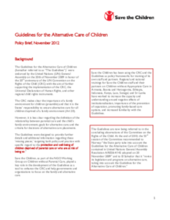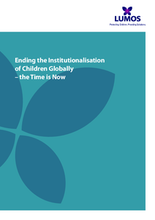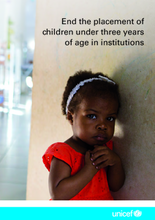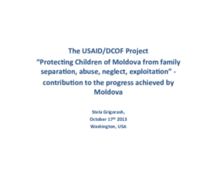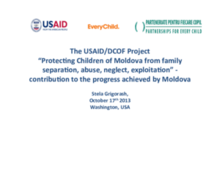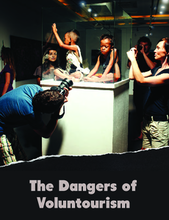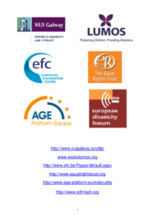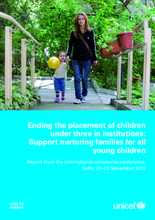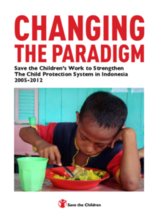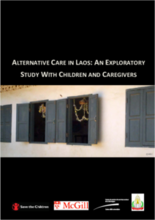Displaying 461 - 470 of 691
This policy brief by Save the Children introduces the background, goals, and guiding principles of the Guidelines for the Alternative Care of Children endorsed by the UN General Assembly on the 20th of November 2009 while also explaining why family-based care is a preferred care arrangement over institutions. Furthermore, it suggests policy and practice recommendations to further protect children without appropriate care and strengthen families and communities.
In the attached document, Lumos reports that 8 million children worldwide are in institutions globally.
On the 22nd October 2013, a new regional campaign in the Latin American and Caribbean region was launched to end the placement of children under three years of age in institutions.
The second of two important presentations by Dr. Stela Grigorash, the Director of Partnerships for EveryChild Moldova, on the important work and lessons learnt in reforming the care system in that country.
The first of two important presentations by Dr. Stela Grigorash, the Director of Partnerships for EveryChild Moldova, on the important work and lessons learnt in reforming the care system in that country.
In this article for Prism Magazine, a publication of Evangelicals for Social Action, the authors ask challenging questions about the role of 'orphanage tourism', where Westerners visit or volunteer to work at a residential care center (orphanage) in the developing world, whether the trip is arranged by a tour or travel company, a nonprofit, or by a church.
This joint memo was issued by a group of European organizations to clearly state their belief that the draft language on community living in the proposed EU Structural Funds Regulations should be amended to enhance the effect and to better advance the rights of children, persons with disabilities, and older people.
This Report from the international ministerial conference, held in Sofia, 21–22 November 2012, entitled 'Ending the placement of children under three in institutions: support nurturing families for all young children', brings together the presentations, political commitments and priority actions identified by the participants, including 20 governments from Eastern Europe and Central Asia.
This report documents the work conducted by Save the Children in collaboration with the Indonesian Ministry of Social Affairs over a period of 7 years to strengthen the national child protection system and change the underlying paradigm for that system away from over-reliance on residential care and towards child and family centered responses.
This report summarizes the findings of a study on parental and alternative childcare in Luang Prabang and Xayabury provinces in Northern Lao People’s Democratic Republic.

